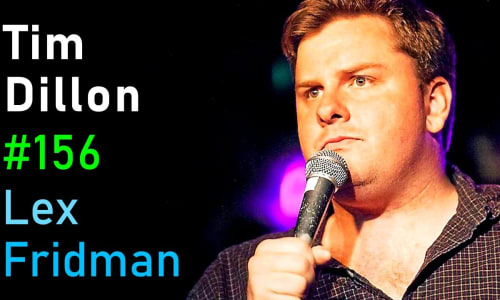See all Lex Fridman transcripts on Youtube

Tim Dillon: Comedy, Power, Conspiracy Theories, and Freedom | Lex Fridman Podcast #156
2 hours 22 minutes 40 seconds
🇬🇧 English

Omnivision Solutions Ltd
- Getting Started
- Create Transcript
- Pricing
- FAQs
- Recent Transcriptions
- Roadmap